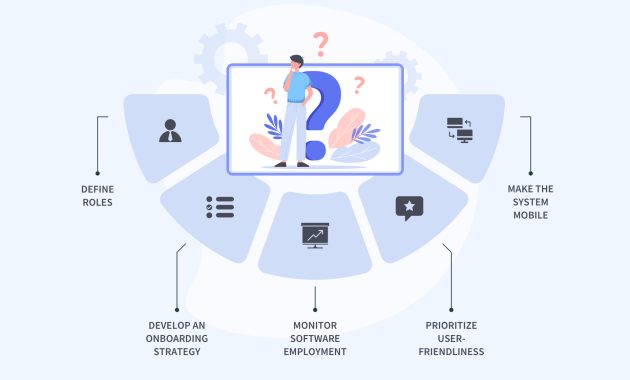
Self-Service Business Intelligence Software: Driving Actionable Insights
In today’s data-saturated world, businesses are drowning in information but often thirsting for actionable insights. The ability to quickly analyze data and extract meaningful conclusions is no longer a luxury; it’s a necessity. This is where self-service business intelligence (BI) software steps in, empowering users to take control of their data and drive informed decision-making. This article explores the power of self-service business intelligence software and how it can transform your organization from data consumers to data-driven actors.
The core promise of self-service business intelligence software is straightforward: to put the power of data analysis directly into the hands of business users. This eliminates the bottleneck of IT or specialized analysts. It allows individuals across departments – from marketing and sales to finance and operations – to explore data, create reports, and build dashboards without needing extensive technical expertise. This democratization of data access fosters a culture of data literacy and enables faster, more agile decision-making. The key is to provide the right tools.
The Evolution of Business Intelligence
Traditional BI systems often relied on complex, IT-driven processes. These systems typically involved lengthy implementation cycles, custom-built reports, and a significant reliance on technical specialists. While these systems provided valuable information, they often struggled to keep pace with the rapidly changing needs of the business. Self-service business intelligence software represents a significant evolution. It shifts the focus from a centralized, IT-controlled model to a decentralized, user-empowered approach. This shift is driven by several factors.
- Technological advancements: The rise of cloud computing, powerful processors, and user-friendly interfaces has made sophisticated data analysis tools accessible to everyone.
- Increased data volumes: Businesses are generating more data than ever before. Traditional BI systems struggle to handle the volume and velocity of modern data streams.
- Demand for agility: In today’s fast-paced business environment, organizations need to make decisions quickly. Self-service business intelligence software enables this agility.
Key Features of Effective Self-Service BI Software
Not all self-service business intelligence software is created equal. To truly empower users and drive actionable insights, the software should possess several key features:
- Intuitive User Interface: The interface should be easy to navigate and understand, even for non-technical users. Drag-and-drop functionality, interactive visualizations, and clear data representations are crucial.
- Data Connectivity: The software should connect to a wide range of data sources, including databases, spreadsheets, cloud services, and more. Support for various data formats is also essential.
- Data Preparation Capabilities: Users should be able to clean, transform, and prepare data for analysis without needing to rely on IT. This includes features like data blending, filtering, and data cleansing.
- Data Visualization Tools: A comprehensive suite of visualization tools, such as charts, graphs, and maps, is essential for presenting data in a clear and understandable manner.
- Reporting and Dashboarding: The software should allow users to create custom reports and interactive dashboards that track key performance indicators (KPIs) and provide a holistic view of the business.
- Collaboration Features: The ability to share reports, dashboards, and insights with colleagues is crucial for fostering collaboration and ensuring that everyone is on the same page.
- Security and Governance: Robust security features and data governance controls are essential to protect sensitive data and ensure compliance with regulations.
Benefits of Implementing Self-Service BI Software
The implementation of self-service business intelligence software can bring a multitude of benefits to an organization.
- Faster Decision-Making: Users can quickly access and analyze data, enabling them to make decisions faster and more confidently.
- Improved Data Literacy: Self-service business intelligence software empowers users to become more data-literate, fostering a culture of data-driven decision-making throughout the organization.
- Reduced Reliance on IT: By putting the power of data analysis in the hands of business users, self-service business intelligence software reduces the burden on IT departments, freeing them up to focus on other strategic initiatives.
- Increased Agility: Businesses can adapt quickly to changing market conditions and seize new opportunities.
- Cost Savings: By automating data analysis tasks and reducing the need for specialized analysts, self-service business intelligence software can lead to significant cost savings.
- Enhanced Collaboration: The software facilitates collaboration by enabling users to share reports, dashboards, and insights with colleagues.
- Better Business Outcomes: Ultimately, self-service business intelligence software helps businesses make better decisions. This leads to improved performance and better business outcomes.
Choosing the Right Self-Service BI Software
Selecting the right self-service business intelligence software is crucial for success. Consider the following factors when making your decision:
- Ease of Use: The software should have an intuitive user interface that is easy to learn and use.
- Data Connectivity: Ensure that the software can connect to all of your relevant data sources.
- Scalability: Choose a solution that can scale to meet your growing data needs.
- Features and Functionality: Evaluate the features and functionality of the software. Make sure it meets the specific needs of your business.
- Cost: Consider the total cost of ownership, including software licensing, implementation, and training.
- Vendor Reputation: Research the vendor’s reputation and track record.
- Support and Training: Ensure that the vendor provides adequate support and training.
Consider also the specific needs of your business. Some industries have unique requirements. Ensure the software can accommodate them.
Real-World Examples: Actionable Insights in Practice
The impact of self-service business intelligence software can be seen across various industries. Here are a few examples:
- Retail: Retailers can use self-service business intelligence software to analyze sales data, identify trends, optimize pricing, and personalize marketing campaigns. They can better understand customer behavior.
- Healthcare: Healthcare providers can use self-service business intelligence software to analyze patient data, improve operational efficiency, and monitor patient outcomes.
- Manufacturing: Manufacturers can use self-service business intelligence software to track production performance, identify bottlenecks, and optimize supply chains. This leads to improved efficiency.
- Finance: Financial institutions can use self-service business intelligence software to analyze financial data, detect fraud, and manage risk. They can also improve customer service.
- Marketing: Marketers leverage self-service business intelligence software to measure campaign performance, understand customer behavior, and optimize marketing spend.
These are just a few examples. Any organization with data can benefit. The key is to identify the specific use cases that will deliver the most value.
Overcoming Challenges and Ensuring Success
While self-service business intelligence software offers significant advantages, there are also challenges to consider. Successfully implementing and utilizing this software requires careful planning and execution. Here are some key considerations:
- Data Governance: Establish clear data governance policies and procedures to ensure data quality, security, and compliance.
- Training and Support: Provide adequate training and support to users to ensure they can effectively use the software.
- Change Management: Manage the change process effectively to ensure that users embrace the new technology and adapt to new ways of working.
- Data Literacy: Foster a culture of data literacy throughout the organization. Encourage employees to develop their data analysis skills.
- Scalability: Ensure the chosen solution can scale. It needs to meet your organization’s growing data needs.
- Integration: Consider how the self-service business intelligence software will integrate with your existing IT infrastructure and other business systems.
The Future of Self-Service BI
The future of self-service business intelligence software is bright. Several trends are shaping the evolution of this technology:
- Artificial Intelligence (AI) and Machine Learning (ML): AI and ML are being integrated into self-service business intelligence software to automate tasks, provide predictive analytics, and generate insights.
- Cloud-Based Solutions: Cloud-based self-service business intelligence software is becoming increasingly popular. It offers scalability, flexibility, and cost-effectiveness.
- Mobile BI: The ability to access and analyze data on mobile devices is becoming increasingly important.
- Embedded Analytics: Self-service business intelligence software is being embedded into other applications. This allows users to access data and insights directly within their workflow.
- Data Storytelling: The ability to communicate data insights effectively is becoming increasingly important. Data storytelling tools are becoming more sophisticated.
As these trends continue to evolve, self-service business intelligence software will become even more powerful. It will empower businesses to make data-driven decisions. This will lead to even better business outcomes.
Conclusion: Embrace the Power of Data
Self-service business intelligence software is a powerful tool. It enables businesses to transform data into actionable insights. By empowering users with the tools they need to analyze data, organizations can make faster, more informed decisions. This leads to improved performance. It also leads to better business outcomes. Embracing self-service business intelligence software is no longer optional. It is essential for businesses. It allows them to thrive in today’s data-driven world. Implement it, and watch your business transform.
[See also: Related Article Titles]

